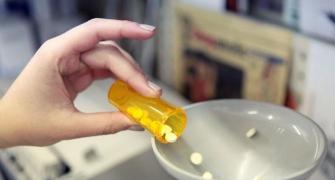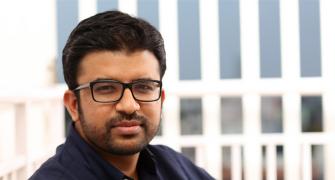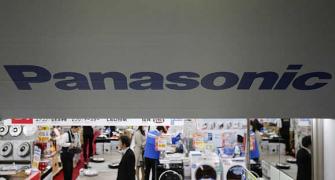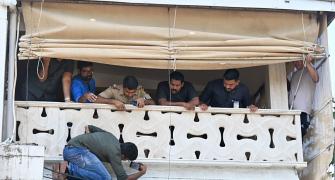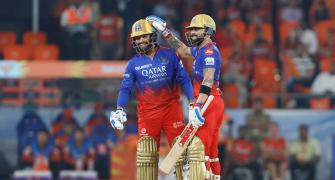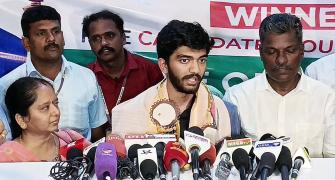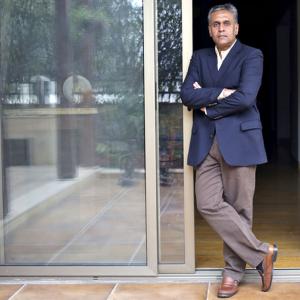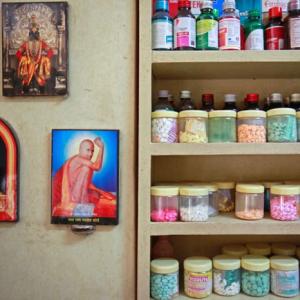Welcome to India's medical devices companies which are successfully locking horns with global giants, whether in India or abroad.
Surajeet Das Gupta reports.
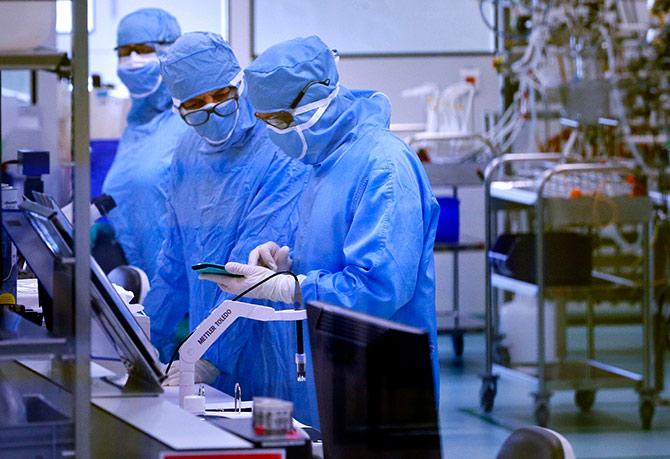
Transasia Bio-Medicals, which controls over a third of the Indian market in blood analyser machines and attendant chemicals, is making a big push to extend its footprint abroad.
Already, more than half of its sales of Rs 12 billion come from global markets.
In the last few years, Transasia has bought 14 medium-sized medical technology companies in various countries, including the US, Russia and Turkey, to cater to those markets.
Suresh Vazirani, managing director, Transasia Bio-Medicals, says there are two reasons for the strategy.
First, some of these companies have specialised technology not available in India.
Second, it is often cheaper to manufacture devices in foreign countries than in India, because then the company does not have to pay import duties.
Welcome to India's medical devices companies which are successfully locking horns with global giants, whether in India or abroad.
And they are cornering large chunks of the market with a combination of high quality manufacturing, aggressive pricing, better service and research and development.
While Transasia has made its mark despite stiff competition from such big boys as Roche, Abbott and Siemens, the Rs 6.5 billion Hindustan Syringes & Medical Devices (HMD), known for its Dispovan disposable syringes, is taking on US's Becton Dickinson and Denmark's Nova in India's insulin pen needle market.
Says Rajiv Nath, joint managing director, HMD, "We will sell these specialised needles at 50 per cent of what global competitors are charging. That's because we will manufacture them in India while our global competitors import them."
- More than half of Transasia Bio-Medicals' sales of Rs 12 billion come from global markets
- In the last few years, it has bought 14 medium-sized medical technology firms in various countries
- Hindustan Syringes & Medical Devices is taking on US' Becton Dickinson and Denmark's Nova in India's insulin pen needle market
- Sahajanand Medical Technologies, the second-largest stent manufacturer in India, aims to be amongst the top three players in Europe in the next three to four years
HMD, which has a 60 per cent share in the disposable syringes market, is fighting a pricing battle with Chinese manufacturers and struggling hard to maintain its No. 1 position.
In fact, even a few years ago, its market share was 70 per cent.
Taking advantage of low import duties, Chinese manufacturers have been flooding the market with cheap syringes. "The Chinese are dumping needles and even syringes that are 20 -30 per cent cheaper with no brand or quality," says Nath.
HMD has also made a dent in the surgical blades market in the US.
This has been due in large part to the diversity supply policy in the US under which about 20 per cent of the supplies are supposed to come from ethnic-run companies or blacks, among others.
According to Nath, HMD has already become the third largest player in the US market for surgical blades.
Other Indian medical device manufacturing companies are also looking West.
Take Surat-based Sahajanand Medical Technologies (SMT).
Not content with being the second largest stent manufacturer in India, competing with giants like Abbott and Meditronics, the company now wants to make a dash for the global market.
Says CEO Ganesh P Sabat, "Our goal is to be amongst the top three players in Europe in the next three to four years."
The company has recently completed a study of its stents by an international agency in seven European countries.
The study showed that its stents are on a par with the best in the world.
In addition, SMT's R&D labs are coming out with robust innovations such as a 60-micron stent (most are of 80 micron), which is the slimmest in the world, and a biodegradable polymer stent, which reduces the chances of infection.
The company has now attracted the attention of PE funds Samara Capital and Morgan Stanley which have pumped in Rs 3 billion, most of which will go into setting up a second SMT plant in Hyderabad.
Many of these firms are using aggressive pricing to take on global competition.
For instance, the Rs 2 billion, Delhi-based J Mitra & Co sells its dengue test kits at a price which is 50 per cent lower than that of global players.
Managing director Jatin Mahajan says that its battery-operated blood and plasma testing analysers targeted at Tier 2 and Tier 3 cities reduce the cost of tests by over 60 per cent -- something that no MNC offers.
However, despite their success, the going hasn't been very easy for many of these medical devices manufacturers.
Nath says it would have been cheaper for HMD to stop manufacturing needles for syringes and import them from China because of low import duties.
The jury is also out on the impact of caps on prices imposed by the government on certain medical devices.
While SMT expects to see a 10-15 per cent growth in stents, others say that as long as India does not give preferential treatment to Indian players, as China and the US does to their domestic manufacturers, the playing field will remain uneven.


